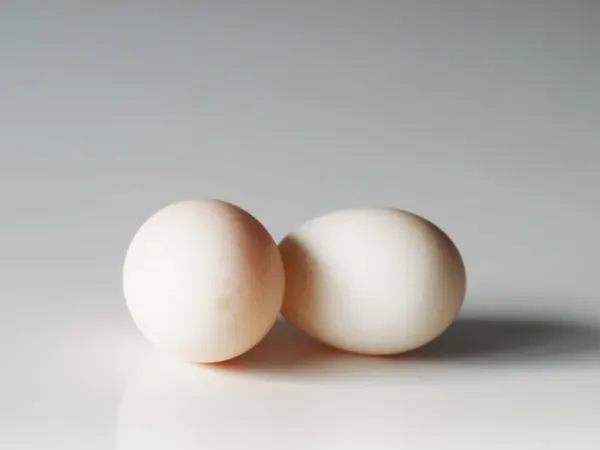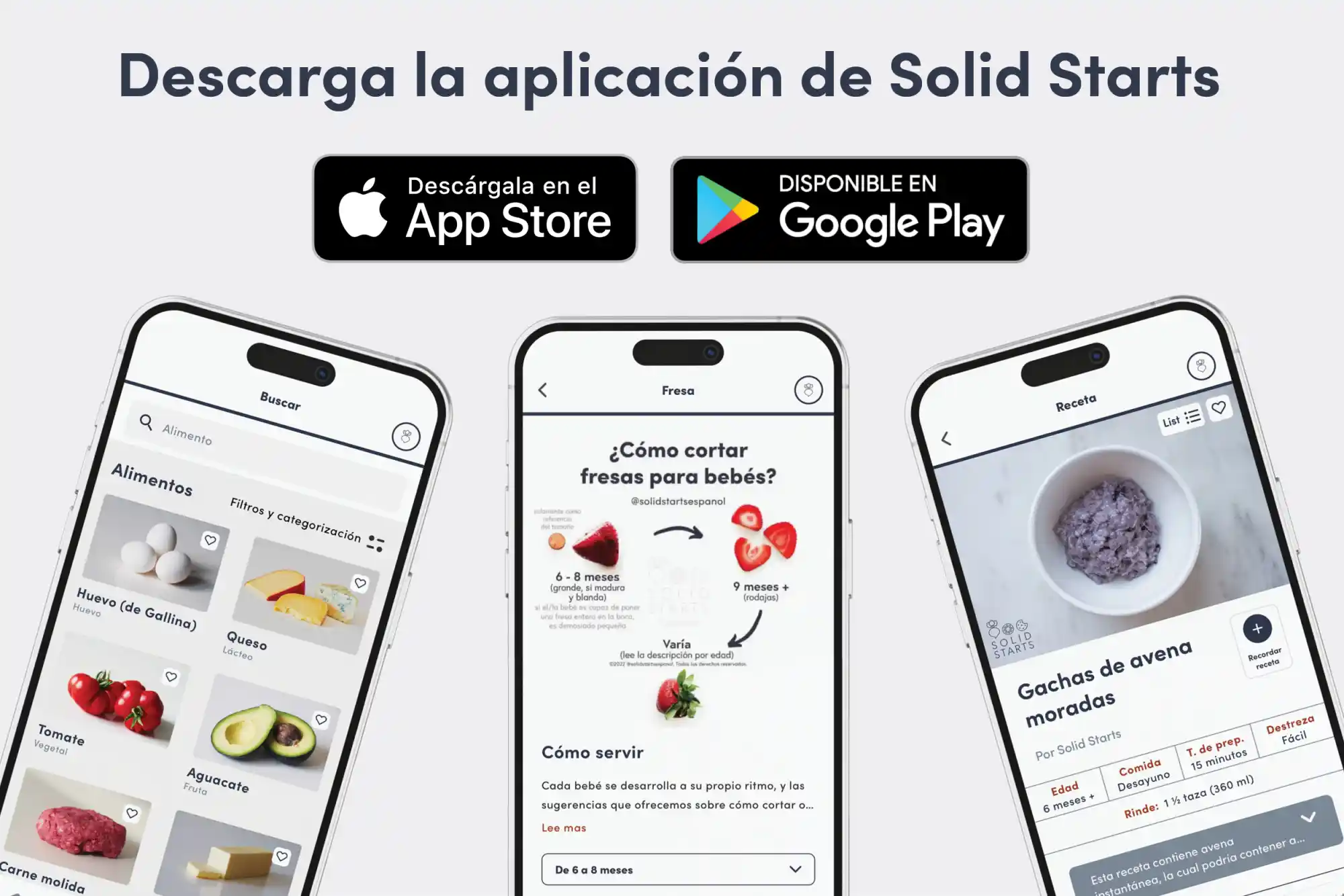Acceda a la base de datos First Foods® en Solid Starts App.
Leer másHuevo de pato
Huevo
Sugerencia de edades
6 meses
Alto contenido de hierro
Sí
Alérgeno común
Sí

When can babies eat duck eggs?
¡Lo sentimos, esta página aún no está disponible en español! Estamos trabajando tan rápido como podemos para traducir todo nuestro contenido, gracias por tu paciencia y apoyo.
Eggs (from chicken, duck, quail, and other fowl) may be introduced as soon as baby is ready to start solids, which is generally around 6 months of age.
Fun fact: Because the yolk of duck eggs is larger—and larger in proportion to the egg white—duck eggs are more nutritious than chicken eggs.
How do you prepare duck eggs for babies with baby-led weaning?
Cada bebé se desarrolla a su propio ritmo, y las sugerencias que ofrecemos sobre cómo cortar o preparar determinados alimentos son generalizaciones para una amplia audiencia.
6 to 12 months old:
Make an omelet (making sure the egg inside is fully cooked and not runny) and cut rectangular strips for your baby to hold with their fist. To encourage self-feeding, hand the egg strip to your baby in the air. Once your baby’s pincer grasp develops (where the thumb and pointer finger meet), move on to the next stage. At this age you can also incorporate egg into any dish as long as the egg is well cooked.
12 to 18 months old:
Continue with rectangular omelet strips until your baby’s pincer grasp forms (where the thumb meets the pointer finger) at which point you can cut those same strips into little bite size squares. This is also an excellent time to introduce hard-boiled eggs (quarter or slice in thin rounds with an egg slicer) and egg salad.
18 to 24 months old:
At this age you may find yourself not thinking about how to serve eggs because your baby has gotten so good at eating them! Note that it’s not uncommon for babies who once loved eggs as 6 month olds to stop eating eggs after their first birthday. Some suggest this may be an increased awareness to the smell. If this happens to you, don’t worry and try introducing eggs in fun shapes, using cookie cutters, muffin tins, and other fun presentations.
If your menu could use a refresh, check out our 100 Dinners for Babies & Toddlers.
¡Lo sentimos, esta página aún no está disponible en español! Estamos trabajando tan rápido como podemos para traducir todo nuestro contenido, gracias por tu paciencia y apoyo.
Videos
Are duck eggs a common choking hazard for babies?
They can be. The best preparation of eggs for babies starting solids is via an omelet, which not only reduces the risk of choking compared to, say, a hard boiled egg, but integrates the nutritious yolk into each bite.
For more information, visit our section on gagging and choking and familiarize yourself with common choking hazards.
Are duck eggs a common allergen?
Yes. Eggs are among the top food allergens—second only to milk. That said, it is estimated that only 2% of children have an egg allergy. Fortunately, many children outgrow egg allergies.
When you are introducing eggs to your baby for the first time, it’s best to start with a small quantity, for example, letting your baby munch on one small slice of an omelet for a small amount of time, such as a minute or two. Some babies have severe reactions to even the smallest amount of eggs, so watch carefully for signs of an allergy or sensitivity.
Allergic reactions vary, from watery eyes, hives, rashes, wheezing, itching, facial swelling, coughing, vomiting, diarrhea, and tummy cramps. If the reaction is severe, and/or if your baby is flushed or having trouble breathing, call 9-1-1 immediately, as your baby may be experiencing anaphylactic shock.
While fear of food allergies seems to be at an all-time high, modern science is demonstrating the benefits of introducing food allergens as soon as your baby is ready to start solids. For more detailed information on how to introduce common food allergens, check out our guide, Introducing Allergens to Babies.
Are duck eggs healthy for babies?
Yes! Duck eggs (and eggs in general) are a terrific source of fat and protein, plus they contain lots of iron and even some zinc—two nutrients that babies really need to thrive.
In fact, eggs (particularly the yolks) contain almost every vitamin (with the exception of vitamin C) and duck eggs have tons of selenium and B-vitamins, especially vitamin B12. Eggs are also one of the best sources of cholesterol and choline—two important nutrients for bone building, brain development, and cellular growth. Best of all: eggs are one of the only food sources of vitamin D, which helps our bodies absorb calcium to power bone growth.
Eggs are one of the most nutritious foods that you can give to your baby, but be careful that they are fully cooked before serving. Eggs may contain salmonella, which can result in a bacterial disease in the intestinal tract.
Escrito y revisado por los/las siguientes especialistas
Consejos de expertos directo a tu bandeja de entrada
¡Suscríbete y recibe correos semanales con recetas, consejos y más!
Copyright © 2026 • Solid Starts Inc


